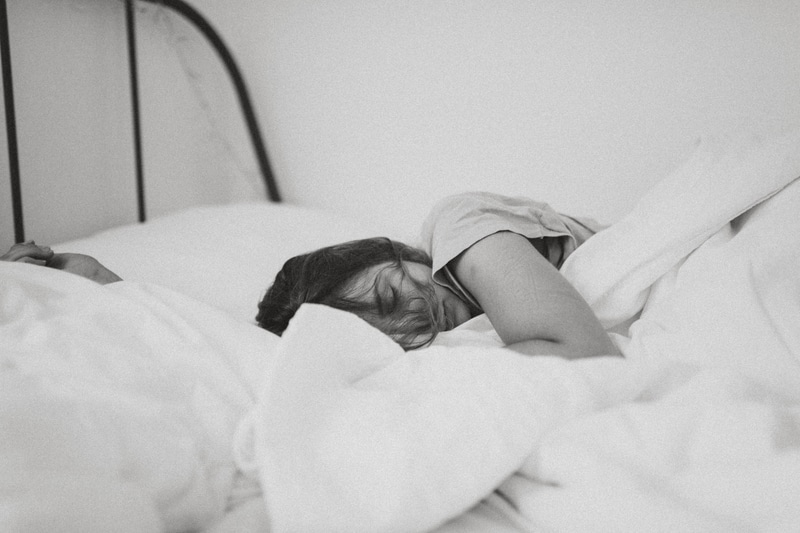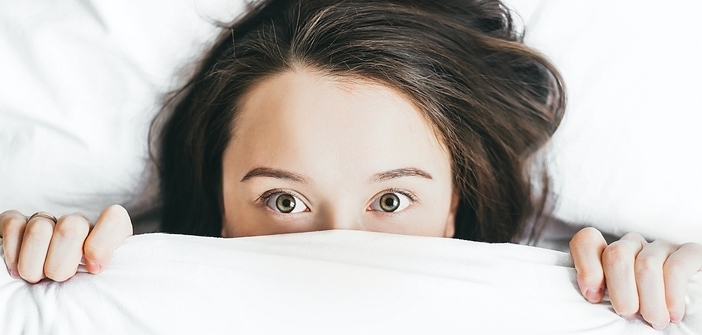Even though most of us are coping quite well with having to stay at home to protect our health and that of others (it cannot be repeated enough), unconsciously, it can generate stress. No one can move around or visit their loved ones, and the very idea that one might be sick is distressing. Naturally, sleep can be disrupted and sometimes even lead to real insomnia.
How and why is sleep disrupted? What are the effects?
Disrupted sleep can have multiple reasons that can even add up. First of all, there is undoubtedly this anxiety due to confinement and the global health crisis. Even if we try to take a step back, it is easy to succumb to stress just by seeing all this anxiety-inducing news, the long lines at the supermarket, and the heavy silence in the streets the few times we go out.

Additionally, being locked inside, most people tend to occupy themselves with screens, whether it is the computer, phone, or television from morning till night. The blue light that these screens emit tends to delay sleep onset and promote a state of nervousness. Furthermore, in a situation where we stay at home and move less, it is normal to lose our time cues. The body no longer understands the difference between day and night as well.
The effects of this lack of sleep are primarily irritability and increased stress, but also weight gain, lack of concentration, and memory problems. Therefore, it is very important to determine what the real causes of one’s insomnia are, as explained on this page, because they are unique to each person, and then seek to change one’s habits in order to regain lost balance.
Dreams are affected too
Naturally, it is normal to have strange dreams, even nightmares or other problems like sleep paralysis for example, given the current climate. According to psychologists, confinement tends to bring out childhood anxieties, in addition to causing bad dreams directly related to this pandemic. All this is mainly due to the fact that we are not doing anything constructive and that some are experiencing this confinement alone. As a result, the unconscious tends to bring back bad memories or anxieties that we no longer even remember.

How to minimize the risks of sleep disorders and bad dreams?
Indeed, during this period, many are working remotely or on partial unemployment. However, it remains important to maintain a good lifestyle and a proper rhythm even if one feels less tired.
This is why it is advised to continue going to bed and getting up at the same times as usual, or almost. To avoid suffering from insomnia, physical activity, even just a few minutes a day, is enough. Many sites have decided to offer sports programs adapted to confinement for free and live.
In such a context, regularly calling your loved ones for reassurance is also important both to ensure that everyone is doing well and to chat and get your mind off things. It is, of course, necessary to stay informed about what is happening in the country and the world, but without spending entire hours in front of the news, at the risk of increasing anxiety, it is recommended to get informed only once a day at the same time, for example at the 8 p.m. news, or during lunch, and avoid doing so first thing in the morning.
Finally, rituals should be established to unwind and relax before bedtime. Meditation sessions, breathing techniques, reading, hot baths, etc… there are many ways to relax and regain lost sleep.




